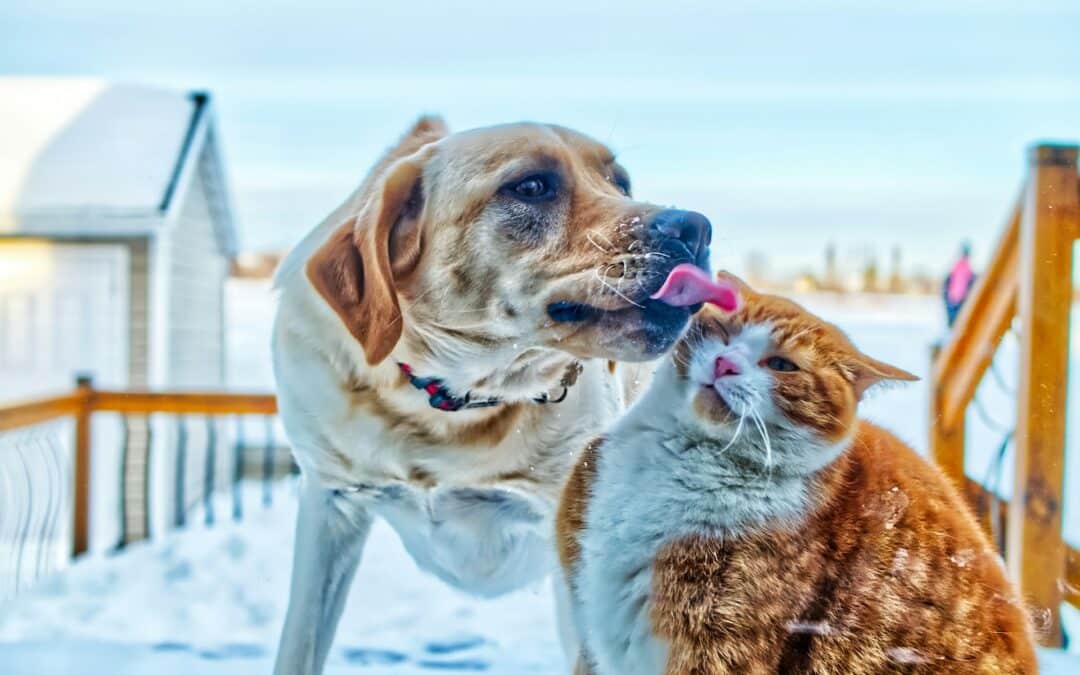Pets might not need their teeth to last for several decades like we do, but they can still develop many of the same dental problems. February is National Pet Dental Health Month, so before the month is over, we’d like to take this chance to remind you why dental care is so important for pets.
The Importance of Pet Dental Care
Cats and dogs can’t brush their teeth on their own, so taking care of their dental health is up to us. Brushing your pet’s teeth at home and feeding them a healthy diet will help prevent tooth decay. Getting yearly dental checkups and teeth cleanings at the vet will help prevent tooth loss and the pain that leads up to it.
Cavities and gum disease can cause some extreme pain, leading to further problems like loss of appetite and behavioral changes. Dental infections can also spread throughout your pet’s body, causing internal infections, inflammation, and disease. Here’s how to protect your pet’s dental health so they can live a long and happy life.
Dental Health Basics for Dogs
The most common dental problems in dogs are bad breath and tooth fractures. Since bad breath is often one of the first signs of cavities and gum disease, “doggy breath” should never be ignored. If your dog’s breath constantly smells bad, it may be time for a trip to the vet for a teeth cleaning and exam.
To keep your dog’s teeth in good condition, try to brush them every day. Even once a week is better than no brushing at all. You should also be careful about what you allow your dog to chew—gnawing on things like sticks and bones could make your dog break a tooth. And don’t neglect your veterinary visits! Most dogs need to have their teeth cleaned at least once a year.
Dental Health Basics for Cats
In cats, the most common dental problems are gum disease and tooth resorption. Although the causes are unclear, tooth resorption affects as many as 60% of cats, and up to 75% of cats over the age of five. And some health problems, like feline diabetes, make cats more likely to suffer from poor dental health.
Problems like gum disease and tooth decay in cats can be prevented with good dental care. Brushing your cat’s teeth every day (or as often as you can) and taking them to the vet once a year for dental exams are the best ways to protect their dental health. And although they’re not a substitute for brushing, teeth-cleaning treats can help too.
The Best Dental Care for Cats and Dogs in Gilbert, Arizona
Bad breath and yellow teeth are some of the first signs of dental problems in pets. So before they start to feel pain from a dying tooth or gum disease, make an appointment with a trusted veterinary dentist. The doctors at Anasazi Animal Clinic will give your pet a thorough examination and let you know if they need a teeth cleaning or any other dental work. To make an appointment, give us a call at 480-497-0505 or send us a message online today.
Photo by Yan Laurichesse on Unsplash used with permission under the Creative Commons license for commercial use 2/20/2024.

